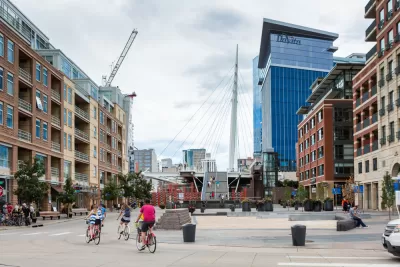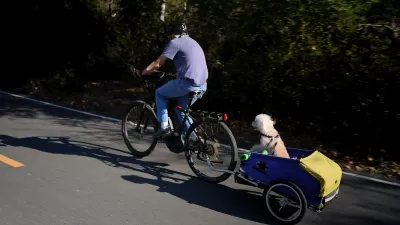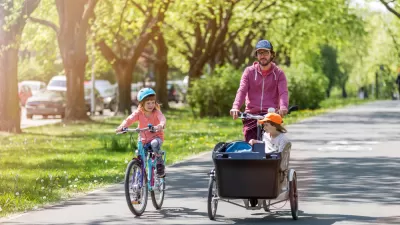The city’s latest round of vouchers were snapped up by the public within minutes of being released, showing the unrelenting popularity of the e-bike rebate program.

A Denver city program that gives e-bike buyers rebates of up to $1,700 continues to be a hit with residents, with vouchers being snapped up almost as quickly as they’re made available, reports Whitney Bauck for CityLab.
“The Denver initiative grew out of a 2020 vote in which residents approved a 0.25% sales tax increase to provide $40 million in funding per year for climate action, meant to move the city toward its goal of reaching net-zero emissions by 2040.” The initial round was so successful that the city shifted to a monthly voucher release, which is still drawing hundreds of interested Denverites, and “the city is now increasingly being looked to as a model by the rest of the country as local communities take on more initiatives to reach net-zero emissions targets.”
The article attributes the program’s success to its somewhat unique nature, which gives users a discount immediately at the point of sale rather than as a tax rebate. The rebates are also notably large, with the biggest discounts for low-income voucher recipients. “Another essential feature has been the city government’s partnership with local retailers, which helps to ensure that the bike vouchers are incentivizing recipients to keep money circulating in the local economy.”
FULL STORY: Denver’s E-Bike Rebates Are So Hot They're Gone Within Minutes

Planetizen Federal Action Tracker
A weekly monitor of how Trump’s orders and actions are impacting planners and planning in America.

Restaurant Patios Were a Pandemic Win — Why Were They so Hard to Keep?
Social distancing requirements and changes in travel patterns prompted cities to pilot new uses for street and sidewalk space. Then it got complicated.

Map: Where Senate Republicans Want to Sell Your Public Lands
For public land advocates, the Senate Republicans’ proposal to sell millions of acres of public land in the West is “the biggest fight of their careers.”

Maui's Vacation Rental Debate Turns Ugly
Verbal attacks, misinformation campaigns and fistfights plague a high-stakes debate to convert thousands of vacation rentals into long-term housing.

San Francisco Suspends Traffic Calming Amidst Record Deaths
Citing “a challenging fiscal landscape,” the city will cease the program on the heels of 42 traffic deaths, including 24 pedestrians.

California Homeless Arrests, Citations Spike After Ruling
An investigation reveals that anti-homeless actions increased up to 500% after Grants Pass v. Johnson — even in cities claiming no policy change.
Urban Design for Planners 1: Software Tools
This six-course series explores essential urban design concepts using open source software and equips planners with the tools they need to participate fully in the urban design process.
Planning for Universal Design
Learn the tools for implementing Universal Design in planning regulations.
Heyer Gruel & Associates PA
JM Goldson LLC
Custer County Colorado
City of Camden Redevelopment Agency
City of Astoria
Transportation Research & Education Center (TREC) at Portland State University
Camden Redevelopment Agency
City of Claremont
Municipality of Princeton (NJ)





























